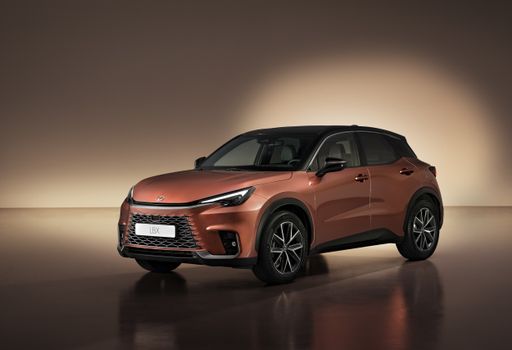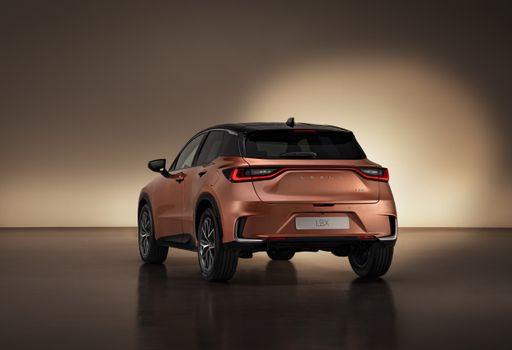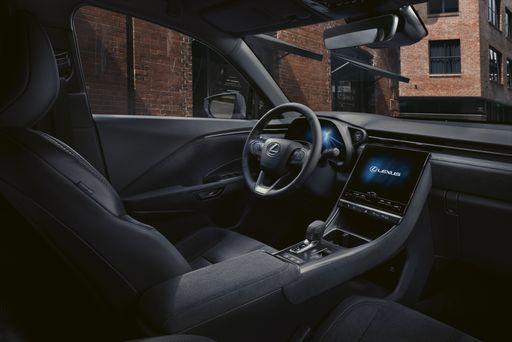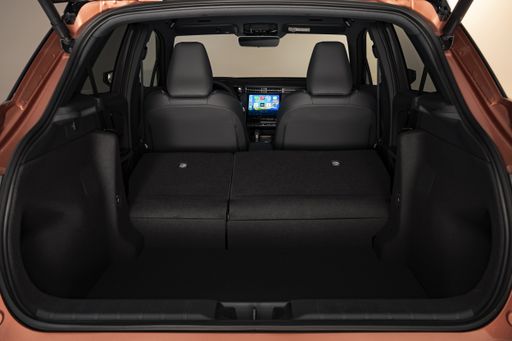Hyundai i20 vs Lexus LBX - Differences and prices compared
Compare performance (100 HP vs 136 HP), boot space and price (17400 £ vs 28300 £) at a glance. Find out which car is the better choice for you – Hyundai i20 or Lexus LBX?
Costs and Efficiency:
Price and efficiency are key factors when choosing a car – and this is often where the real differences emerge.
Hyundai i20 has a decisively advantage in terms of price – it starts at 17400 £, while the Lexus LBX costs 28300 £. That’s a price difference of around 10877 £.
Fuel consumption also shows a difference: Lexus LBX manages with 4.50 L and is therefore to a small extent more efficient than the Hyundai i20 with 5.20 L. The difference is about 0.70 L per 100 km.
Engine and Performance:
Power, torque and acceleration say a lot about how a car feels on the road. This is where you see which model delivers more driving dynamics.
When it comes to engine power, the Lexus LBX has a noticeable edge – offering 136 HP compared to 100 HP. That’s roughly 36 HP more horsepower.
In acceleration from 0 to 100 km/h, the Lexus LBX is clearly perceptible quicker – completing the sprint in 9.20 s, while the Hyundai i20 takes 11.10 s. That’s about 1.90 s faster.
In terms of top speed, the Hyundai i20 performs barely noticeable better – reaching 183 km/h, while the Lexus LBX tops out at 170 km/h. The difference is around 13 km/h.
There’s also a difference in torque: Hyundai i20 pulls barely noticeable stronger with 200 Nm compared to 185 Nm. That’s about 15 Nm difference.
Space and Everyday Use:
Cabin size, boot volume and payload all play a role in everyday practicality. Here, comfort and flexibility make the difference.
Both vehicles offer seating for 5 people.
In curb weight, Hyundai i20 is slightly lighter – 1088 kg compared to 1280 kg. The difference is around 192 kg.
In terms of boot space, the Hyundai i20 offers hardly perceptible more room – 352 L compared to 332 L. That’s a difference of about 20 L.
In maximum load capacity, the Hyundai i20 performs slightly better – up to 1165 L, which is about 171 L more than the Lexus LBX.
When it comes to payload, Lexus LBX minimal takes the win – 475 kg compared to 472 kg. That’s a difference of about 3 kg.
Who comes out on top?
Overall, the Hyundai i20 shows itself to be has the upper hand and secures the title of DriveDuel Champion.
It convinces with the more balanced overall package and proves to be the more versatile choice for everyday use.

Hyundai i20
Costs and Consumption
View detailed analysis
Engine and Performance
View detailed analysis
Dimensions and Body
View detailed analysis
Hyundai i20
The Hyundai i20 is a cheeky small car that mixes smart styling with sensible practicality, feeling more polished and roomy than you might expect for the money. It’s an easy car to live with, offering engaging handling, a comfy cabin and useful equipment that make daily commutes and weekend errands notably less dull.
details




Lexus LBX
The Lexus LBX wraps premium touches and a surprisingly spacious cabin into a compact crossover that’s perfectly at home in town or heading out on longer drives. It wears the badge with quiet confidence, serving up a refined ride and clever packaging for buyers who want Lexus polish without shouting for attention.
details




|

|
|
|
|
Costs and Consumption |
|
|---|---|
|
Price
17400 - 24000 £
|
Price
28300 - 40000 £
|
|
Consumption L/100km
5.2 - 5.3 L
|
Consumption L/100km
4.5 - 4.8 L
|
|
Consumption kWh/100km
-
|
Consumption kWh/100km
-
|
|
Electric Range
-
|
Electric Range
-
|
|
Battery Capacity
-
|
Battery Capacity
-
|
|
co2
119 - 121 g/km
|
co2
102 - 110 g/km
|
|
Fuel tank capacity
40 L
|
Fuel tank capacity
36 L
|
Dimensions and Body |
|
|---|---|
|
Body Type
Hatchback
|
Body Type
SUV
|
|
Seats
5
|
Seats
5
|
|
Doors
5
|
Doors
5
|
|
Curb weight
1088 - 1190 kg
|
Curb weight
1280 - 1365 kg
|
|
Trunk capacity
352 L
|
Trunk capacity
255 - 332 L
|
|
Length
4065 - 4075 mm
|
Length
4190 mm
|
|
Width
1775 mm
|
Width
1825 mm
|
|
Height
1450 - 1455 mm
|
Height
1560 mm
|
|
Max trunk capacity
1165 L
|
Max trunk capacity
992 - 994 L
|
|
Payload
450 - 472 kg
|
Payload
455 - 475 kg
|
Engine and Performance |
|
|---|---|
|
Engine Type
Petrol
|
Engine Type
Full Hybrid
|
|
Transmission
Automatic, Manuel
|
Transmission
Automatic
|
|
Transmission Detail
Dual-Clutch Automatic, Manual Gearbox
|
Transmission Detail
CVT
|
|
Drive Type
Front-Wheel Drive
|
Drive Type
Front-Wheel Drive, All-Wheel Drive
|
|
Power HP
79 - 100 HP
|
Power HP
136 HP
|
|
Acceleration 0-100km/h
11.1 - 13.7 s
|
Acceleration 0-100km/h
9.2 - 9.6 s
|
|
Max Speed
166 - 183 km/h
|
Max Speed
170 km/h
|
|
Torque
113 - 200 Nm
|
Torque
185 Nm
|
|
Number of Cylinders
3 - 4
|
Number of Cylinders
3
|
|
Power kW
58 - 74 kW
|
Power kW
100 kW
|
|
Engine capacity
998 - 1197 cm3
|
Engine capacity
1490 cm3
|
General |
|
|---|---|
|
Model Year
2024
|
Model Year
2025
|
|
CO2 Efficiency Class
D
|
CO2 Efficiency Class
C
|
|
Brand
Hyundai
|
Brand
Lexus
|
What drivetrain options does the Hyundai i20 have?
The Hyundai i20 is offered with Front-Wheel Drive.
The prices and data displayed are estimates based on German list prices and may vary by country. This information is not legally binding.
